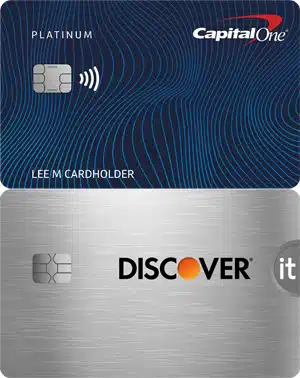Capital One Financial Corp. may be on the brink of acquiring Discover Financial Services, if two news reports are accurate.
The Wall Street Journal and Bloomberg.com separately reported on Monday a deal between the two credit card juggernauts is in the offing, with The Journal reporting an announcement could come Tuesday. If accurate, the deal would balloon the role of the combined companies in the payments industry.
Neither McLean, Va.-based Capital One nor Riverwoods, Ill.-based Discover, responded to Digital Transactions News inquiries Monday. The rationale and the payoff for each company remains unclear for the time being.

In addition to combining two credit card issuing powerhouses, the acquisition could give Capital One access to a processor network. Currently, Mastercard Inc. and Visa Inc. operate their own networks with American Express Co. and Discover acting as issuers and processors of their own cards. Discover is also the owner of the extensive Pulse electronic funds transfer network.
Discover installed a new chief executive in December as it worked to recover from a pricing and regulatory snafu that included overcharges to merchants.
“A Capital One/Discover merger has the potential to change the future of U.S. card payments,” Brian Riley, director of credit and co-head of payments at Javelin Strategy and Research, tells Digital Transactions News in an email message. “These top-tier issuers, with a market capitalization of $50.8 billion and $27.6 billion, respectively, would give Capital One access to Discover’s $100 billion credit card book and $20 billion in personal and student loans. Along with that would be the ability to integrate the Pulse/Discover network and the Discover Global Network.”
Other observers say a potential deal could be more than “big news.”
“The possibility of one of the U.S. market’s largest credit card issuers acquiring another of the largest credit card issuers is big news. A large credit card issuer acquiring a credit card and debit network is maybe more than just big news,” says Stewart Watterson, strategic advisor at Datos Insights. “If the deal goes through, the new entity would not be completely unique. American Express began issuing commercial credit cards in 1958, and it received its banking charter in 2008. Since then, AmEx has leveraged its unique structure to some extent, but its network has always been a niche provider of commercial and consumer credit and purchasing cards.”
Capital One could have access to payments like few do, suggests Michael Seaman, founder and chief executive of Swipesum, a Clayton, Mo.-based payments provider. “By bringing Discover under its wing, Capital One isn’t just expanding; it’s essentially getting a key to the backdoor of the payments ecosystem. It’s like how American Express handles everything from card issuing to transaction acquiring,” Seaman says in an email to Digital Transactions News.
The combination could elevate Capital One’s standing, too. “With domestic credit cards at $142 billion, the Discover portfolio would leap Capital One to a dominant position in the U.S. market with almost a quarter trillion dollars of credit card receivables,” Riley says.
The combo also would have implications for the electronic funds transfer system because of Discover’s ownership of Pulse, he says. And there could be ripple effects, he adds, for the proposed Credit Card Competition Act, a bill in Congress that would mandate alternative networks for credit card processing.
“With the potential of the Credit Card Competition Act to disrupt Mastercard and Visa issuers, Capital One may find an opportunity by owning what would be considered an alternate payment network,” Riley says. “However, the deal will likely require approval by the U.S. Department of Justice because of [its] size.”
Capital One also may benefit from Discover’s ownership of Diners Club, a large merchant business that it could grow, he says.
Much remains unknown, including whether the deal will actually happen or when it could be announced, observers point out. Should it materialize, few doubt the significance of its impact.
“Given the significant position of Discover’s consumer credit and debit networks and CapOne’s established digital consumer-banking footprint, it is hard to predict where this new entity could go, limited only by its leader’s imagination and the regulator’s sense of adventure,” Watterson says.
Seaman agrees. “This deal could set a new benchmark for what it means to be a leader in this space,” he says. “The future of payments isn’t just about scale—it’s about how quickly and effectively we can adapt new technologies and changing consumer expectations. The deal is a sign of the times, signaling a shift towards a more integrated and innovative payments ecosystem. And for those of us in the industry, it’s a call to action to innovate, collaborate, and evolve.”
The department-store chain Sears, Roebuck & Co. launched Discover in 1985 as part of a financial-services strategy, but in 1993 spun it off as Dean Witter, Discover & Co. This operation merged with Morgan Stanley in 1997 and then rebranded in 1999 as Discover Financial Services. The company then spun off as a separate, publicly traded entity in 2007.





